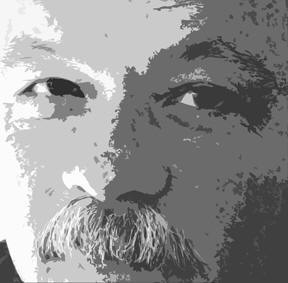
Video |
Tejido is:
|
o
Tejido is an extension of the
applied research and community outreach activities
of Dr. Mark
Frederickson.
o An
apprenticeship experience.
o An
interdisciplinary & collaborative experience:
Architecture - Landscape Architecture - Urban
Design - Engineering.
o An international experience: U.S. - Europe - Latin America -
Africa - Asia - the Caribbean and the Middle-East.
o A research, design and planning office / dedicated to the needs
of community.
|
P e d a g o g y:
|
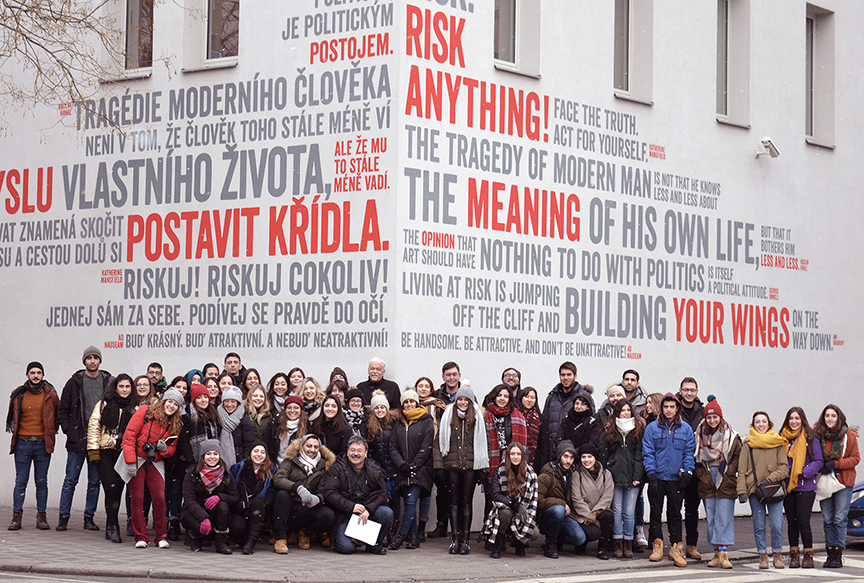 |
|
Prague Team
-
Given the complex nature
of the global political, socio-economic,
and environmental contexts within which
we work, our research and resultant
design strategies necessarily need to
consider a range of ordering systems as
potential sources of design and planning
form, i.e. economic, environmental,
cultural, functional, and aesthetic
measures of sustainability. This in
turn, suggests that our teams become
interdisciplinary and international in
composition.
|
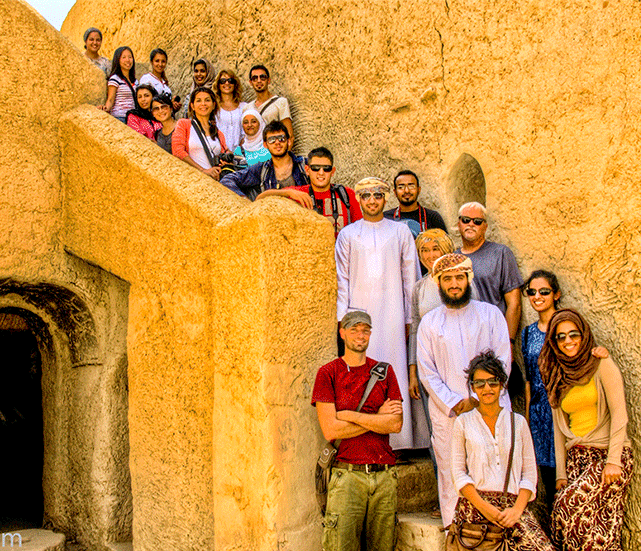 |
Oman Team
-
It is intended that the collaborative experiences developed in
Tejido will catalyze in our students a
better understanding of the potential
influences and confines inherent in our
design and planning professions.
Especially, in regard to their ability
to effect meaningful change in urban and
small town fabrics. These experiences
help students establish the relevance of
their professional skills within a
global forum.
|
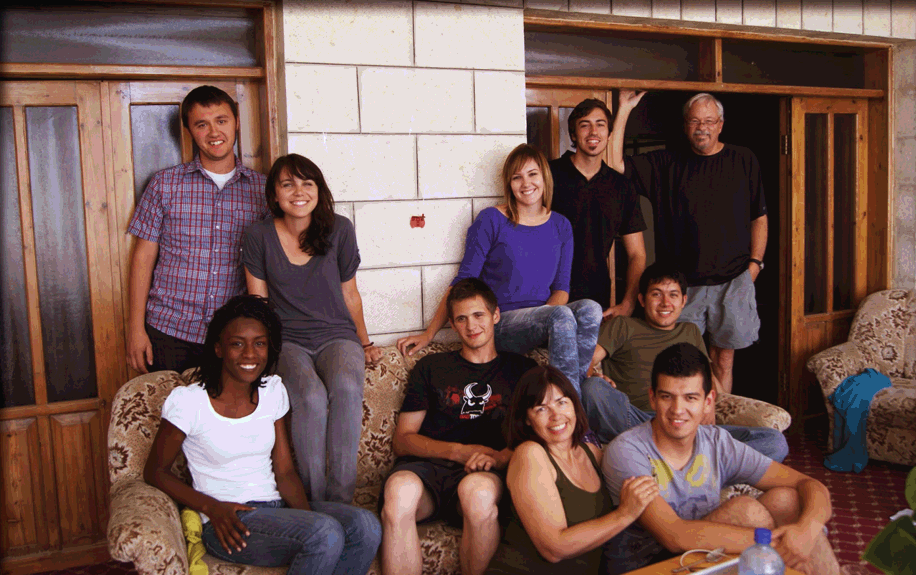 |
|
Palestine Team
|
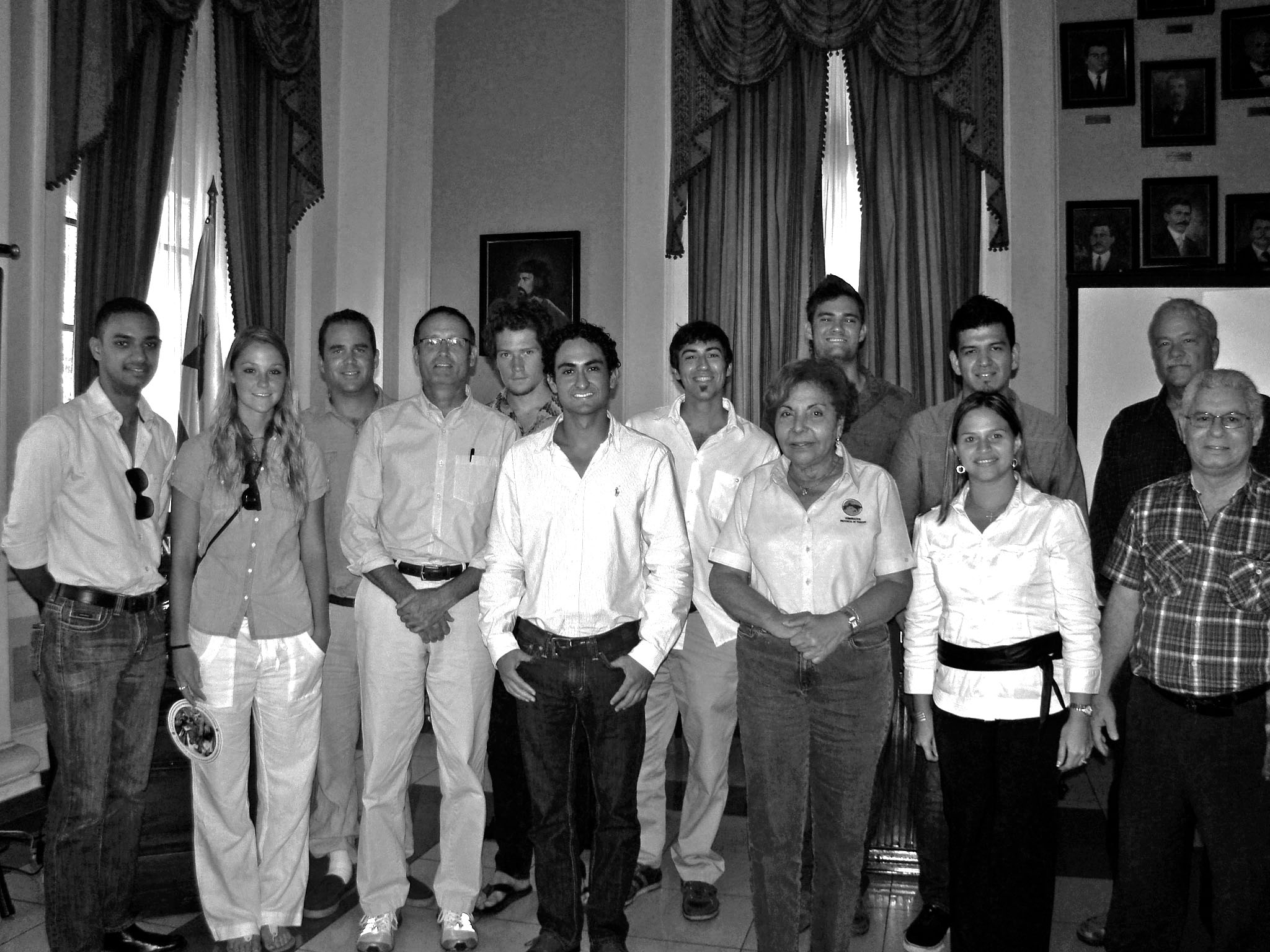 |
|
Panama Team
|
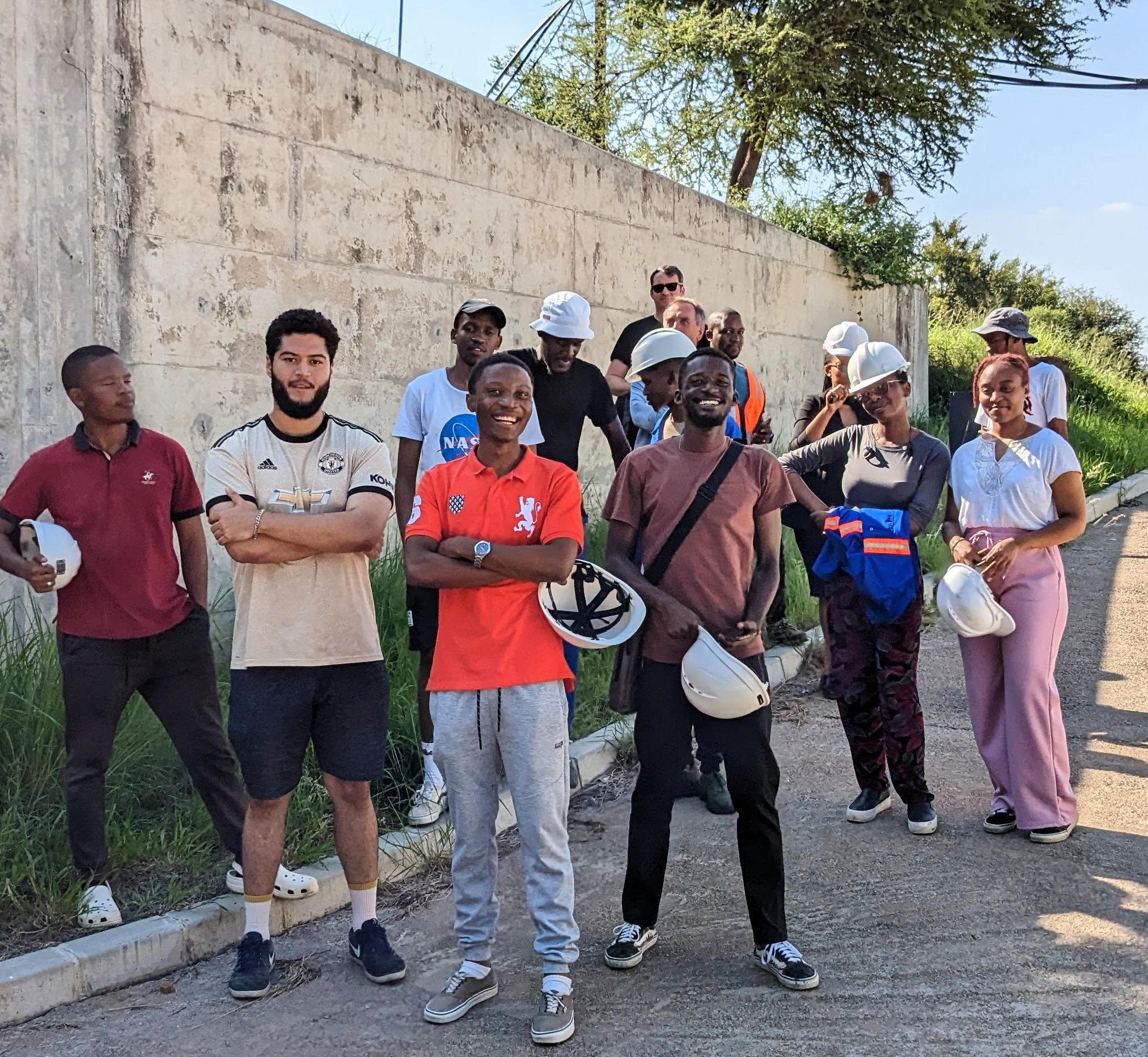 |
|
Gaborone, Botswana Team 2023
|
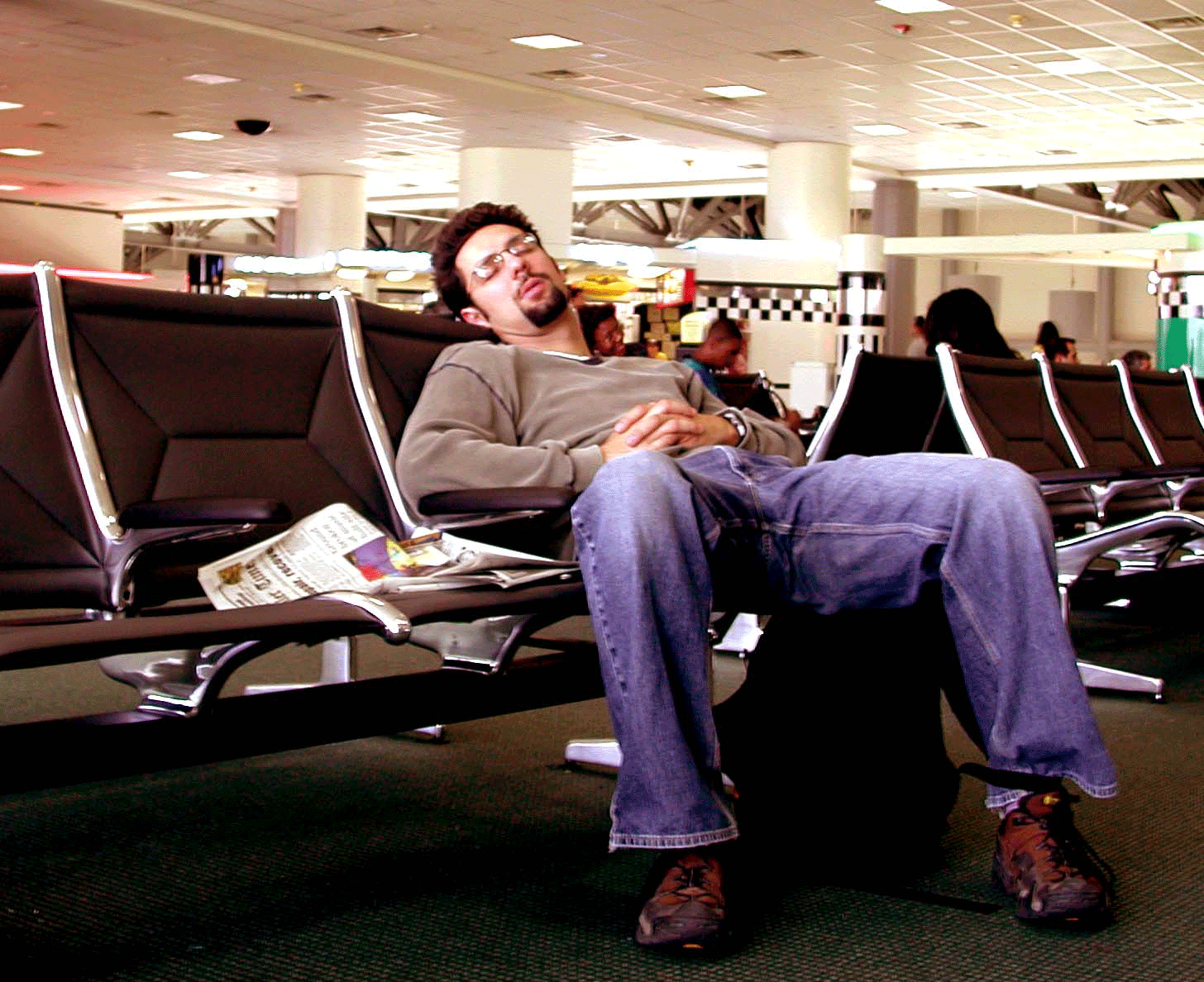 |
|
Panama Team
 |
|
San Carlos, Mexico Team
|
Purpose:
for the past thirty years the Tejido Group has
developed into an interdisciplinary and collaborative
applied research program in which faculty and
professionals in Landscape Architecture, Planning and
Architecture work side by side with University graduate
and undergraduate students in an apprenticeship-style
professional / learning environment. Tejido is also an
international experience and has collaborated on
projects throughout the United States, the Caribbean,
Latin America, Europe, the Middle East and Asia. Projects include:
Post-Industrial Water Front Redevelopment in Prague and
Ankara; Urban revitalization in Al Hamriya, Oman, river corridor
master planning in Tucson and Ankara, harbor
revitalization and waterfront development programs in
Hong Kong, Panama and Mexico; the development of coastal planning and design
guidelines for the State of Sonora, Mexico; tourism and
resort planning for the Panamanian Canal Zone and
Panamanian Government; campus master planning in Arizona
and in Panama; small town revitalization master plans
for several rural areas in Arizona, Sonora and Sinaloa
Mexico including Show Low, Pinetop-Lakeside,
Springerville, Clarkdale, Jerome, Benson, Camp Verde and
Winslow, Arizona; a resort master plan for the Cuisinart
Corp. in Anguilla, British West Indies; and sustainable
community master planning in Picacho and Bisbee,
Arizona, as well as San Carlos, Mexico.
Tejido selects projects in which it wishes to
participate based on several criteria: 1) project
uniqueness and pedagogic value in developing our
students into exceptional practicing professionals; 2)
client need; 3) and, the project’s potential impact on
society and the environment. Although Tejido has and
continues to develop projects through the construction
document phase, we primarily focus on the generation of
conceptual alternatives for our clients. We concentrate
our efforts on developing innovative concepts through
the application of research initiative. Tejido believes
that designers gain insight and inspiration from a
variety of sources. An essential part of our design and
planning processes occurs during pre-design research.
During this phase, information garnered from a variety
of sources is reviewed and incorporated into the design
intentions of our teams of landscape architects,
planners, and architects. Critical socio-cultural,
socio-economic, environmental, functional, and
image-related issues are examined in depth through
hybrid qualitative and quantitative methodologies. Our
designers then distill relevant design and planning
implications from the analysis of the data collected.
These bits and pieces of design ideas (precepts), are
then incorporated into comprehensive design and planning
concepts in a form of post-factum hypothesis generation.
As part of our pre-design research, we collect
information regarding clients and site through
structured interviews and questionnaires, video-tape
protocol studies, and extensive case study analysis. We
also undertake exhaustive site inventories, as well as
user-group analysis of the site and surrounding context.
We gather information, synthesize it, and analyze it for
design implications. Both qualitative and quantitative
research methods are often used to develop design
implications from our data. Design issues are then
presented to our clients for their consideration and
editorial comments. These comments are then integrated
into optimum solutions that are further developed and
presented in both graphic, digital, and literary form.
We consider these presentations as means of establishing
a collaborative dialogue with our clients and their
representatives. We understand the importance of client
participation, and that formative feedback and thorough
research designs are essential to distinctive design
products. In our attempt to facilitate communication
with our clients, we have developed one of the largest
digital libraries of design and planning case studies in
the Southwest.
Unlike associations with traditional design and planning
offices, Tejido offers our clients an opportunity to
afford in-depth applied research and the subsequent
generation of alternative concepts prior to design
development and construction documents. In "real-world"
situations, the conceptual design process is often
foreshortened when financial resources are strictly
limited. As we are essentially a non-profit organization
dedicated to the education of our students and the needs
of our clients, we can afford to focus our efforts on
pre-design research and schematic exploration with our
clients in developing complex, yet tailored master
planning solutions. We see our relationship with
practicing professionals as one of project creation and
not of direct competition. We render conceptual design
and planning services that otherwise could not be
afforded. Tejido assists clients in developing their
ideas to the point where they are ready to seek the
services of professionals in the design development and
construction document phases. The master planning
documents we develop become excellent tools for our
clients in the solicitation of Federal, State and
private funding. The Townships of Clarkdale and Show Low
are both excellent examples of this sequence of events.
They used our master planning document to make
presentations to Federal and State funding agencies and
were subsequently awarded a number of substantial
development grants. These funds were then used to hire
professional firms to execute the design and planning
concepts outlined in our conceptual master planning
documents.
Collaborants:
University of
Botswana & Ministry of
Lands and Housing, Department of Town and Regional
Planning, Gaborone City Council;
Architectural Institute in Prague (ARCHIP) and
Prague City District 7 Planning Dept.;
Bilkent University & Ankara Municipality in Turkey; Muscat Municipality in Oman and Sultan Qaboos
University; RIWAQ and An-Najah National University
in Palestine; the Governor of Panamá, La Universidad
de Panamá and the Ministry of Housing (MIVI) in
Panamá; the
Arch Diocese of Tucson, Arizona; Cuisinart S.A.;
Youth Now Foundation; Ministry of Planning - Sonora,
México; City of Tucson and Pima County; Cuisinart
Corp.; Ministry of Urban Infrastructure and Ecology
- Sonora, México; Faya Corp.; Peter Hartwig Corp.;
the Townships of: Clarkdale, Show Low, Pinetop,
Springerville, Greer, Jerome, Winslow, Benson, Camp
Verde, Nogales, Summerhaven & Cottonwood - Arizona; Pima
County Board of Supervisors – Tucson, Arizona; the
Office of the Governor of Arizona; La Universidad
AutÓnoma
de Sinaloa.